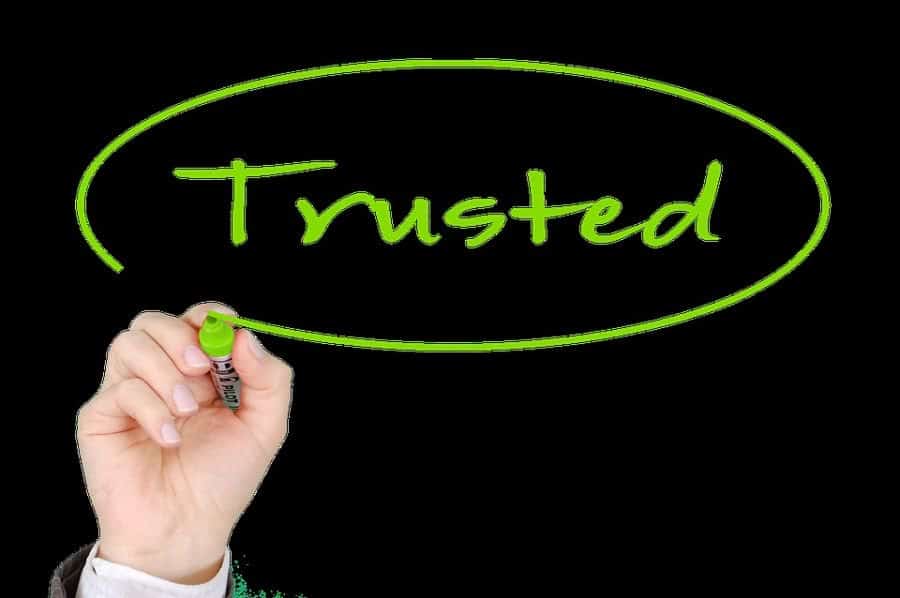There’s no shortage of hurdles for corporate brands to overcome. When building and proliferating a brand, you have to somehow find the combination of designs and qualities that define your organization and simultaneously differentiate you from the competition. You also have to remain consistent with your attributes in order to build a reputation, and keep your employees aligned within those core values and beliefs.
The Bigger Threat
But modern corporate brands are facing a bigger, all-consuming threat: people simply don’t trust businesses the way they used to. A number of factors, including a constant bombardment of advertising messages, concerns over business ethics, the “facelessness” of corporations, and general cynicism, have converged to create an era where being a “corporation” instantly makes you less trustworthy.
A Branding Solution
Branding itself is not the issue here, though. The issue is with corporations. So is there any way to leverage the power of branding in a new way that accommodates this new trend in consumers? Yes … The answer is personal branding.
Much like corporate branding, personal branding is a combination of beliefs, values and qualities exhibited as a kind of identity or personality. But instead of relating to a corporation, they relate to an individual, who can then use that brand to favor a corporate brand in a more favorable, further-reaching way.
For example, take these five personal branding strategies that allow an individual brand to encourage growth in a corporate organization:
- Syndicate content to new audience segments. First, consider using your personal brand as an outlet for content you’ve created as a corporate brand. You probably already syndicate your corporate content using your corporate brand’s social media outlets, so why not earn a few extra thousand readers by pushing it to one more channel? As you gain more prominence as a personal brand authority, your audience will grow, and you’ll likely find that more people will read your corporate content if it’s first shared by your personal profile. As an example, take a look at how Rand Fishkin, founder of Moz, creates and sustains his own “personal brand” identity while also syndicating Moz content to his personal followers.
- Establish new and better client/partner relationships. In business, relationships matter. Whether you’re nurturing a budding partnership or trying to keep your best clients happy, something can get lost in translation when your corporate brand is the one doing the talking. Instead, rely on your personal brand to do much of the communicating. If you make a mistake, it’s much easier to forgive a smiling face than a static logo, and it’s easier to respond warmly to a human being than an LLC. You can also use personal branding as a way to network with people, meet new professionals and survey for potential opportunities in the future.

- Recruit new candidates. Your corporation isn’t just a corporation. It only exists because there’s a team of people running it. You need the best and brightest on your team if you want your corporation to continue thriving, but the image and rhetoric of a sterile brand can be off-putting. The charm and relatability of a personal brand offsets this major weakness in the recruiting field, giving you a personal channel to reach new potential candidates and attract them to your organization in a practical, appealing way.
- Earn press coverage with interviews. High-profile individuals are likely to be targeted for interviews, especially by brands and publishers in the market for new content with a personal angle. Not only do these opportunities help bolster your personal brand and build you a bigger following, they also serve as promising opportunities to get your business’s name out there … without seeming pushy or overly salesy. As an example, look at Albert Scaglione of Park West Gallery, who engages in interviews upon request and naturally gets to talk about his organization.
- Put a face to your corporate brand. In addition to the strategies listed above, you can also use your personal brand as a simple humanizing element for your corporate brand. This is especially powerful if you’re the founder or CEO. If you do enough work for both your personal and corporate brand, eventually the two will become less distinguishable, and your corporate brand will naturally begin to embody your own personality. There are advantages and disadvantages to this, but approachability and personality are rarely a downside. As an example, think of how many people now associate Mark Zuckerberg with the Facebook brand.
These strategies will allow you to adopt your own “personal branding” and still use your social presence to encourage growth for your corporation or organization. There are individual benefits to personal branding too, such as building your value to your company and increasing the span of your online resume. So there’s no reason not to get involved. It can be a strategy that takes a few minutes or a few hours of your time each day, depending on how you prioritize it, so think about what the strategy means to you and start planning accordingly.








